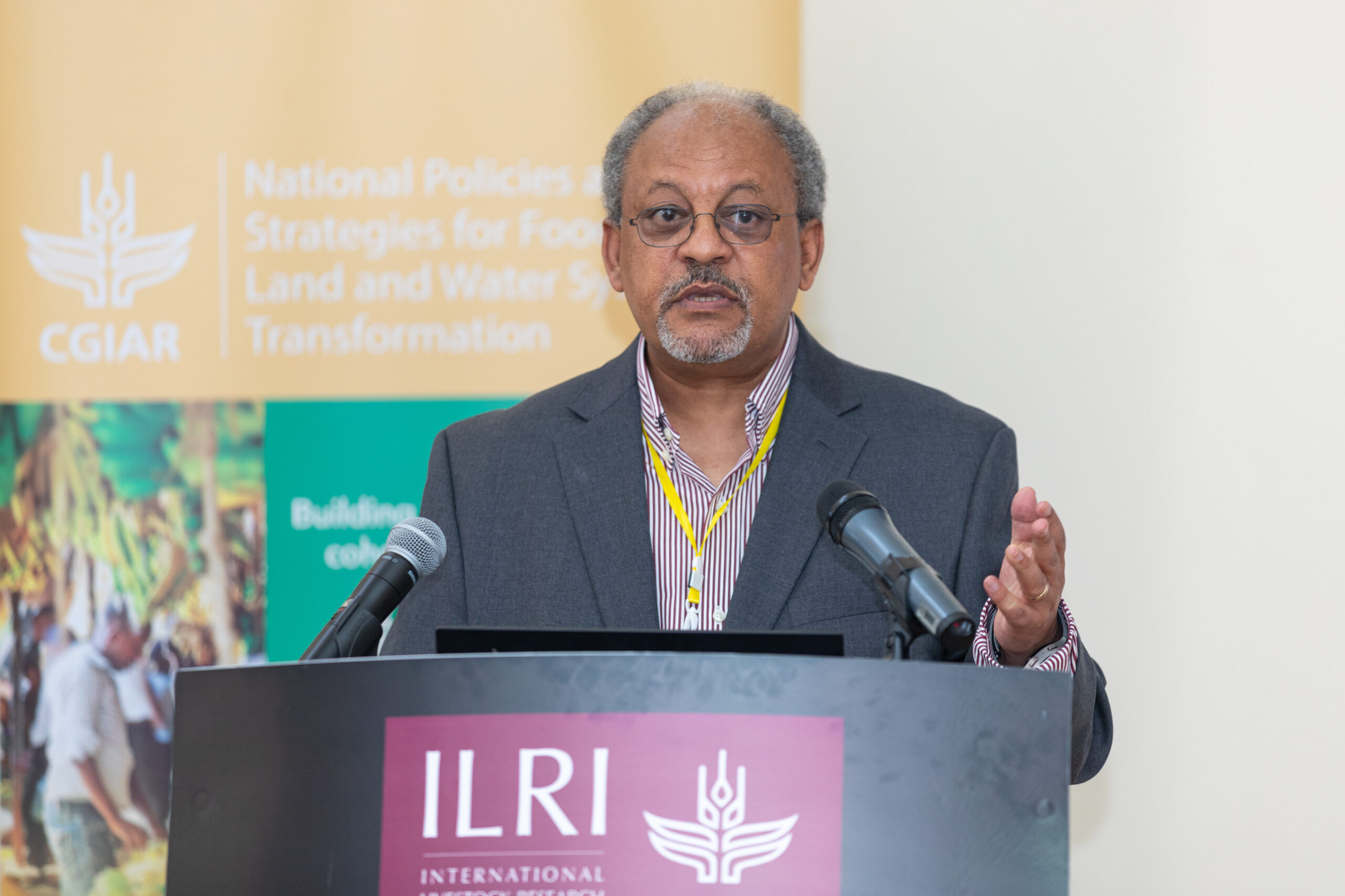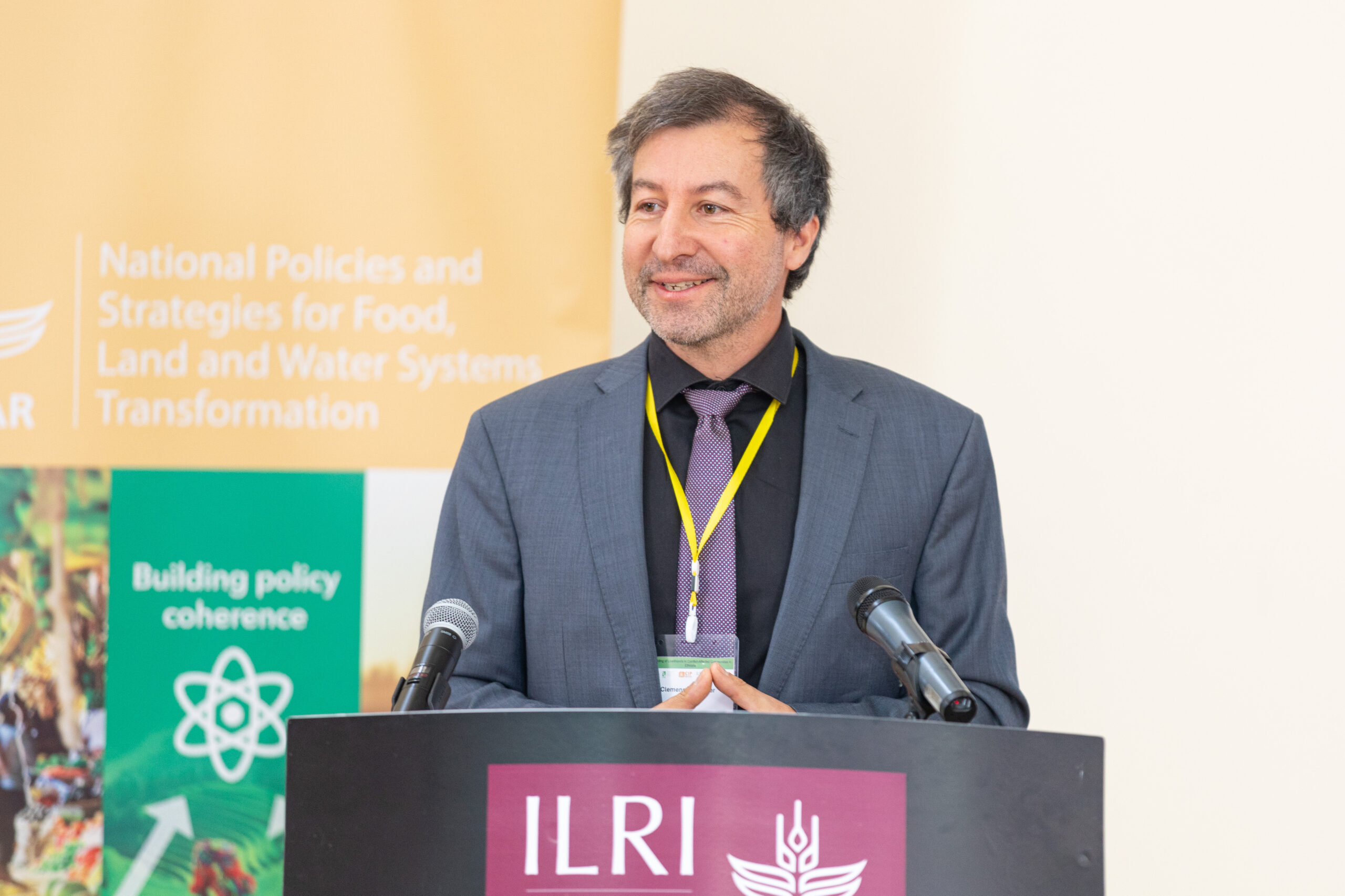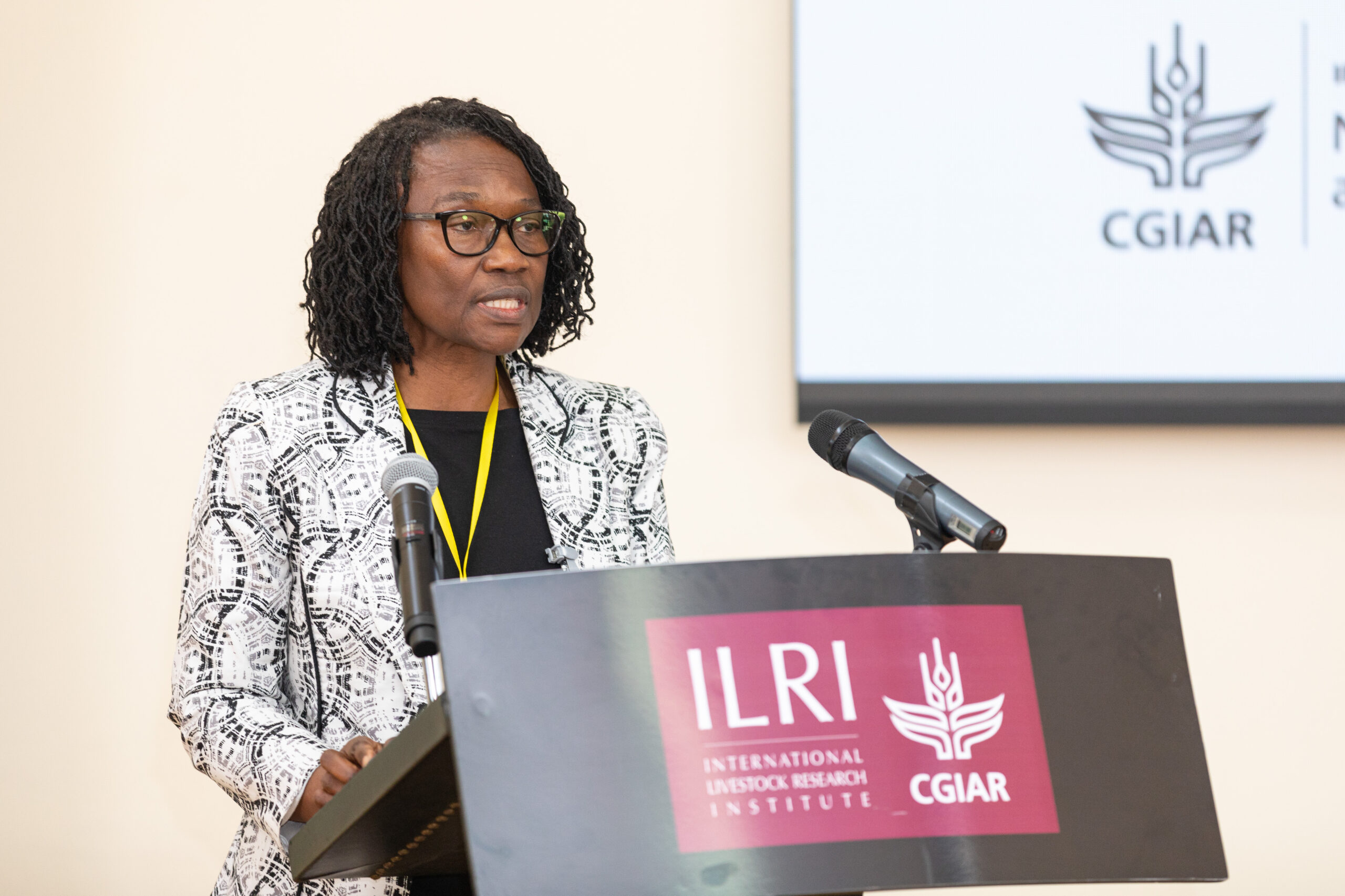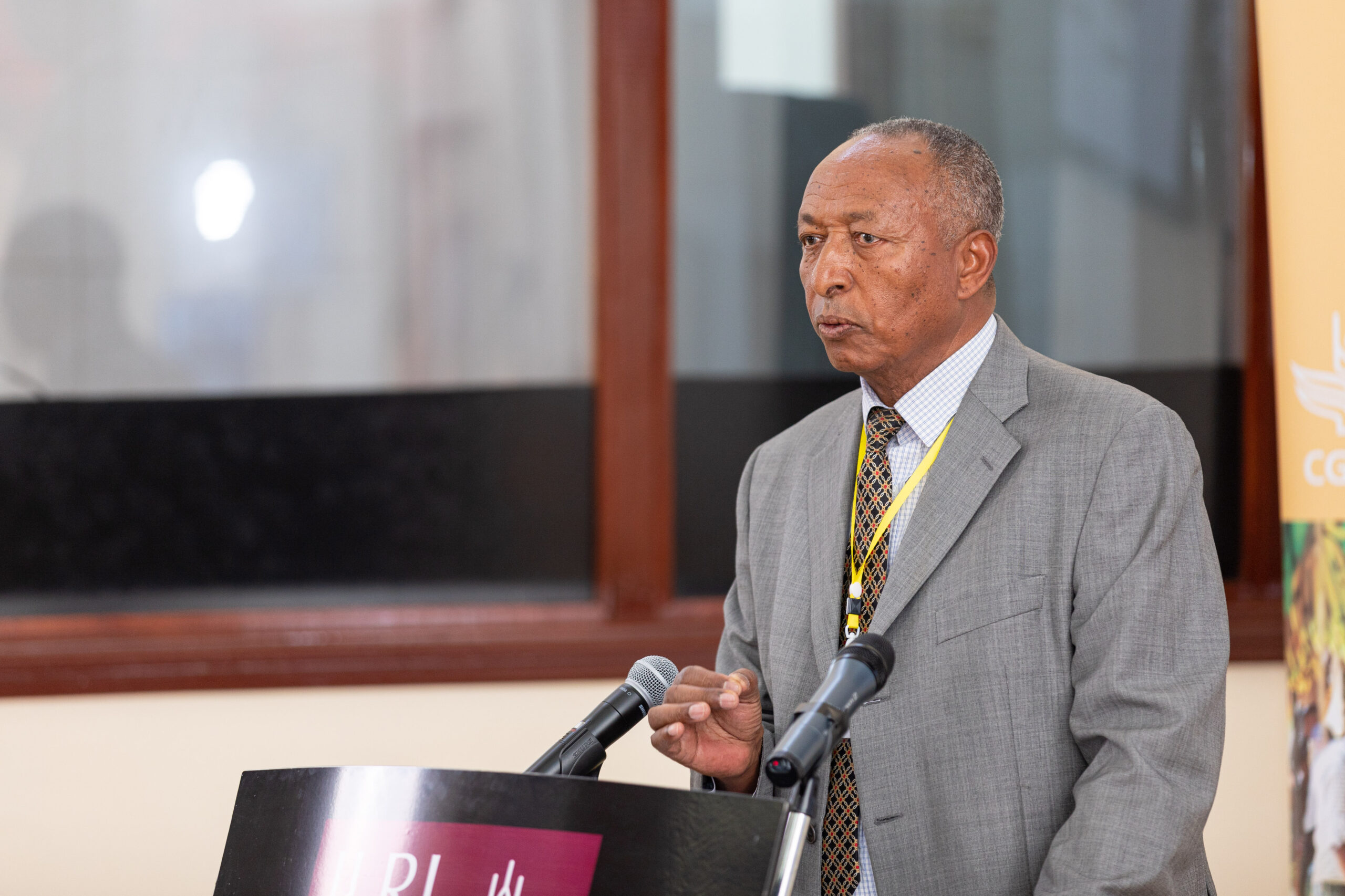The Research and Policy Conference on “Rebuilding Livelihoods in Conflict-Affected Communities in Ethiopia”, held on May 29, 2024, at the ILRI Campus in Addis Ababa, addressed the severe impacts of recent conflicts and droughts on Ethiopian communities. The event, jointly organized by CGIAR Research Initiatives on National Policies and Strategies (NPS) and Fragility, Conflict, and Migration (FCM), along with the Policy Studies Institute (PSI), International Food Policy Research Institute (IFPRI), International Livestock Research Institute (ILRI) and International Potato Centre (CIP), gathered policymakers, development partners, and researchers. The conference's primary goals were to provide empirical evidence to inform policy priorities for sustainable recovery and to identify cost-effective, sustainable investment opportunities to rebuild rural households' production capacities.

The conference started with a welcoming speech from Alemayehu Seyoum, Program Leader and Senior Research Fellow, IFPRI-Addis Ababa, highlighted the significance of the conference given Ethiopia's recent experiences with multiple crises. Keynote speakers emphasized the conference's focus on empirical research to support the Ethiopian government's economic reforms and recovery efforts.

Program Leader and Senior Research Fellow and Lead, CGIAR Initiative on National Polices and Strategies Clemens Breisinger for his part stated that ‘'We seem to live in a new area of constant crisis and these crises make economic development and food system transformation even more complicated.”

Namukolo Covic ILRI Director General’s Representative to Ethiopia and Regional Director of Eastern Southern Africa, CGIAR said that “Research would greatly contribute to recovering the livelihoods of conflict-affected communities”. Speaking at the conference, the PSI Director General Prof. Beyene Petros noted that “no one is left behind from investing in conflict-affected communities and promoting their resilience”.

Dr Getachew Diriba, Senior Advisor and Principal Coordinator, Ethiopian Food Systems Transformation, Office of the Minister, Ministry of Agriculture (MOA) stated that “Human despair, human challenges are difficult. However, we want to intellectualize it, at the end of the day, it's human dignity. That's what we need to rebuild”.
The conference continued featuring two-panel discussions and 12 presentations covering various topics such as post-conflict recovery, rural livelihoods, livestock-based interventions, women's empowerment in fragile contexts, psychosocial support, and social safety nets.
On the high-level panel discussion, it was highlighted how livestock and crop agriculture can drive recovery, help rebuild and bring long-term resilience. The final panel discussion shed light on the global social protection SafetyNet in mitigating the adverse impacts of shocks. It has also emphasized diverse perspectives from experts and practitioners working on the ground.
The discussions shed light on the importance of resilience-building, strategic public spending and protecting vulnerable communities. The speakers stressed on the role of research in informing policy priorities and identifying effective recovery strategies based on recently collected data and analyses.
On the closing remark, Katrina Kosec, Senior Research Fellow and Lead, CGIAR Initiative on Fragility, Conflict and Migration (FCM) stated “By working together, as we see today, sharing our resources, our knowledge, and insights, and coming together from across the spectrum of research and practitioners, by maintaining this open dialogue, we can create a more resilient and prosperous future for Ethiopia.”
The conference successfully brought diverse stakeholders, highlighted, and shared innovative solutions for sustainable recovery in conflict affected communities. The organizers and participants hoped that the knowledge and experiences shared would contribute significantly to the ongoing efforts to rebuild livelihoods and promote resilience in Ethiopia and beyond.